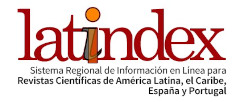Regional Development Pole and Innovative Environment: Empirical Study in the City of Sorocaba
Keywords:
Development poles, innovation habitat (millieu innovateur), governance and institutional cooperation, dynamics of learning, and local development.Abstract
The present paper aims to analyze the factors which foster and constitute the millieu innovateur in the territory the Sorocaba city. To do so, it will require investigating the linkages promoted by the sectors: public, private, universities, research centers and relevant social actors, regarding the promotion of an innovative production system, orchestrated in order to enhance local social capital and cooperation and learning relations. The methodology of the research was grounded in interpretive vision. The research was structured in two steps: first we carried out a study on secondary data sources, and subsequently held the empirical research through semi-structured interviews with key actors that promote the formation and development poles and innovation habitat in the territory of Sorocaba. The hypothesis that guides the research is focused on the argument of Sorocaba being a center of innovation towards the region, from structural policies and initiatives which articulate with the public and private investment, in the midst of a dynamic development marked by territorial cohesion and conflicts.Downloads
Published
2014-11-30
How to Cite
Benevides, G., & Bresciani, L. P. (2014). Regional Development Pole and Innovative Environment: Empirical Study in the City of Sorocaba. Revista Brasileira De Gestão E Desenvolvimento Regional, 10(4). Retrieved from https://www.rbgdr.net/revista/index.php/rbgdr/article/view/1533
Issue
Section
Artigos
License
Authors who have their papers accepted and published in the Brazilian Journal of Regional Management and Development must agree to the copyright policy CC BY https://creativecommons.org/licenses/by/4.0/.
If the article is accepted for publication, the copyright is automatically assigned to the Brazilian Journal of Regional Management and Development.















